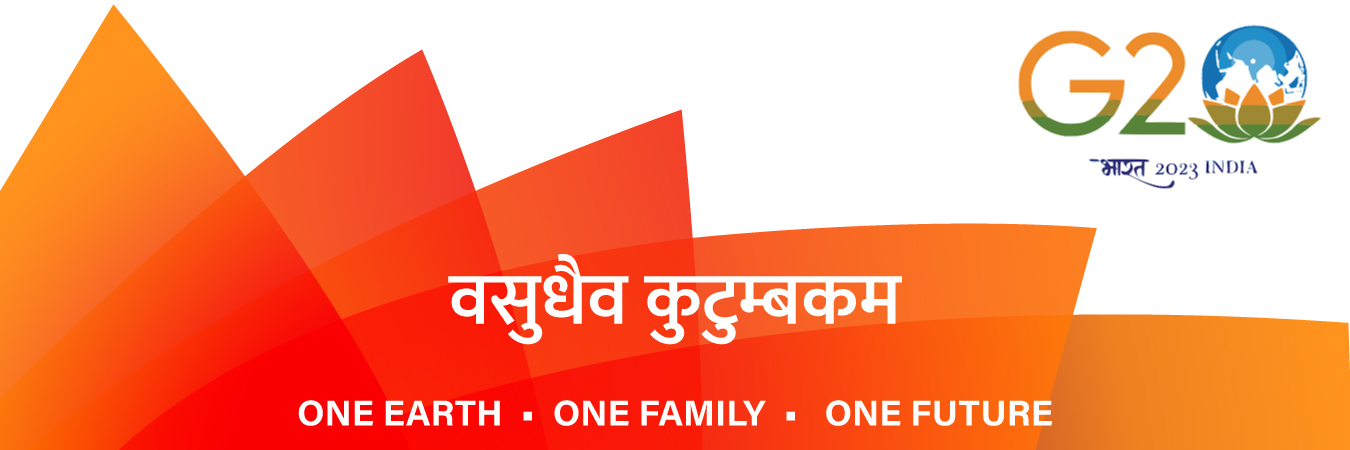
India began presidency of G20 in Amrit Kaal (अमृत काल)
This is the time of geopolitical chaos and uncertainty over post-pandemic economic recovery. On 1st Dec 2022 India has taken over from Indonesia year – long presidency of G20. India has already announced Amrit Kaal a 25-year period commencing from the 75th anniversary of its independence on August 15, 2022, leading up to the centennial of its independence.
India’s vision for the ‘Amrit Kaal’ (अमृत काल) includes a technology-driven and knowledge-based economy, with strong public finances and a robust financial sector.
The goal of ‘Amrit Kaal’ is to ascend to new heights of prosperity for India and the citizens of India.” ‘Amrit Kaal’ is to continue for the next 25 years and the country must start working towards improving the lives of its citizens, reducing the divide between the villages and cities, reducing the government’s interference in people’s lives and building modern infrastructure in India.
Word Amrit is a Sanskrit word that means “immortality” – food or drink that gives immortality and the word “kaal” is a time.
Amrita is composed of the negative prefix, अ a from Sanskrit meaning ‘not’, and mṛityu meaning ‘death’ in Sanskrit, thus meaning ‘not death’ or ‘immortal/deathless’
India as the largest democracy in the world, and the fastest growing economy, India’s G20 presidency will play a vital part in building upon the significant achievements of the previous 17 presidencies.
The Group of Twenty (G20) is the foremost forum for international economic cooperation. It plays an important role in shaping and strengthening global architecture and governance on all major international economic issues.
The G20 Summit is held annually, under the leadership of a rotating Presidency. The G20 initially focused largely on broad macroeconomic issues, bit has since expanded its agenda to inter-alia include trade, sustainable development, health, agriculture, energy, environment, climate change, and anti-corruption.
The G20 group of 19 countries and the EU was established in 1999 as a platform for Finance Ministers and Central Bank Governors to discuss international economic and financial issues. Together, the G20 countries account for almost two-thirds of the global population, 75% of global trade, and 85% of the world’s GDP. In the wake of the global financial and economic crisis of 2007, the G20 was elevated to the level of Heads of State/Government and was named the “premier forum for international economic cooperation.”
The G20 also invites non-member countries, including Bangladesh, Singapore, Spain and Nigeria, besides international organizations such as the United Nations, World Health Organization, the World Bank and the IMF.
India’s G20 presidency will work to promote – Vasudhaiva Kutumbakam (वसुधैव कुटुम्बकम्), which translates to “One Earth, One Family, One Future,” is the theme of India’s G20 presidency. Vasudhaiva Kutumbakam is a Sanskrit phrase found in Maha Upanishada.
The G20 has two main tracks: the Finance Track for finance ministers and central bank governors and the Sherpa Track. The G20’s proceedings are led by the Sherpas, who are appointed as personal envoys of the leaders of member nations. These Sherpas are responsible for overseeing the negotiations that occur throughout the year, deliberating on the agenda for the summit and coordinating the substantive work of the G20. Both tracks have working groups to address specific themes with representatives from relevant parties.
This year’s working groups will focus on global priority areas such as green development, climate finance, inclusive growth, digital economy, public infrastructure, technology transformation, and reforms for women empowerment for socio-economic progress. All these steps are taken to accelerate progress towards the Sustainable Development Goals and secure a better future for the generations to come.
India’s G20 Priorities:
- Green Development, Climate Finance & LiFE
- Lifestyle for the Environment (LiFE) Movement. An India-led global mass movement to nudge individual and community action to preserve the environment.
- Accelerated, Inclusive & Resilient Growth
- Accelerating Progress on Sustainable Development Goals (SDGs)
- Technological Transformation & Digital Public Infrastructure
- Multilateral Institutions for the 21st century
- Women-led Development
India’s Host cities for G20 Summit 2023:
Then the first G-20 Infrastructure Working Group (IWG) meeting under G20 India Presidency was scheduled during 16th-17th January 2023 in Pune. Pune is one of the most important industrial and educational hubs of India which is located in the western Indian state of Maharashtra.
The flagship investment summit of the Government of Uttar Pradesh happened on 10-12 February 2023 at Lucknow. Summit brought together policymakers, industry leaders, academia, think tanks and leaders from across the world to collectively explore business opportunities and forge partnership.
1st G20 Finance Ministers & Central Bank Governors and 2nd G20 Finance & Central Bank Deputies Meetings from 22nd-25th February 2023 in Bengaluru. Bengaluru (also called Bangalore) is the capital of India’s southern Karnataka state. The center of India’s high-tech industry.
Then the U20 cities will gather in Ahmedabad (Ahmedabad (in western India) is the largest city in the state of Gujarat.) in mid-2023 for the U20 Mayors Summit and present their joint recommendations to the government of India ahead of the upcoming G20 Leaders’ Summit, which is set to take place in New Delhi on 9–10 September 2023.
This is very first time India is hosting the G20 event. Vibrant and happening India will execute it successfully. These are very interesting times to see India’s growth story – a step towards becoming a powerhouse.
Ref. No – FB03231056
Related Blogs
Transforming the Future: How DigiLocker is Changing Document Storage & Access
"Discover the power of DigiLocker in this blog post. Explore how DigiLocker is changing the way we store and access documents, saving time and...
Unleashing the Power of UPI: Revolutionizing Digital Payments in India
Just a decade ago, the majority of transactions in India were conducted using hard cash, and there was widespread hesitation when it came..
Insights on the Annual GALA 2023 Conference
The Annual GALA conference was held in Dublin Ireland form 13 to 15 March 2023. Fidel was a Sapphire sponsor as well as had an booth at the event....



